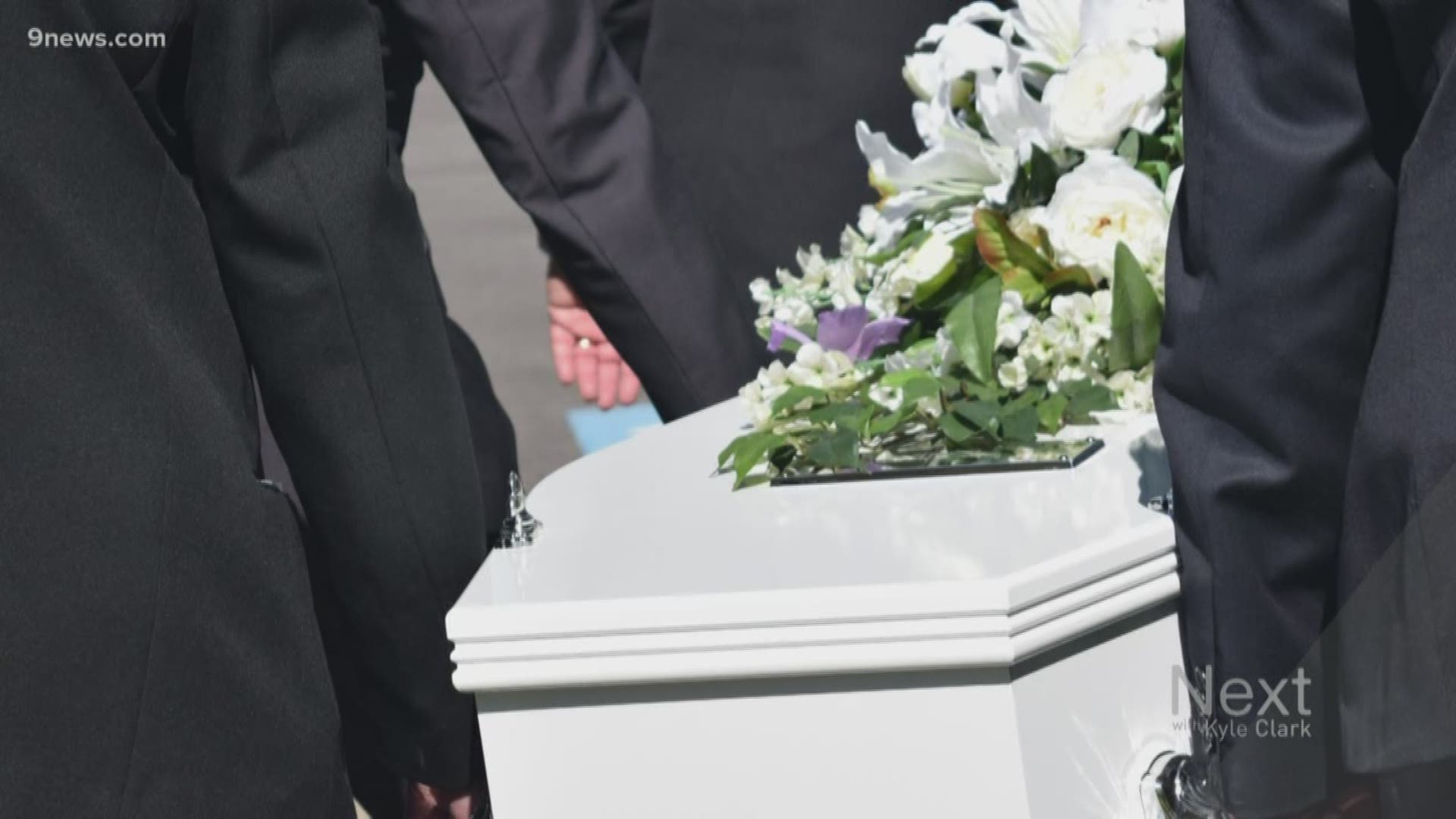CENTENNIAL, Colo. — As Colorado orders have banned groups larger than 10 people, funeral directors have had to use new strategies to help families grieve.
Much like we all are, they’re going digital.
“They are meeting with family over the phone or FaceTime just like we’re doing right now,” said Martha Thayer, head of the Mortuary Science program at Arapahoe Community College. “They are gathering the signatures they need via e-mail.”
Thayer said she’s spoken to funeral directors who’ve videotaped services to send to family members who couldn’t attend, and she’s seen some families use Facebook Live to broadcast a visitation to family members who couldn’t attend because of stay at home orders.
“There’s a phrase that 'joy shared is joy increased, and grief shared is grief diminished,' and right now we’re not able to come together as a whole community and help people through their grief,” she said.
Colorado and many other states have orders requiring people to stay at home and limiting group sizes. Funeral directors take an oath to obey local laws.
In many cases, Thayer said funeral directors are suggesting families immediately bury or cremate their loved one and hold a memorial service later when family and friends can gather.
She worries about that.
“At what point in the future do those memorials start and at what point in the future do people’s compassion fatigue kick in?” she said.
“We saw this after 9/11,” Thayer said. “It was taking weeks upon weeks upon weeks to schedule funerals at the churches in New York City because there were so many funerals to be had, and in the beginning, there were a lot of people who were at those funerals. But as soon as the days and the weeks and the months went on, fewer and fewer people came.”
There are ways to combat so-called compassion fatigue, according to Thayer. She says the most important is remembering to reach out to people when they experience loss, even if you can’t do it in person.
“It’s really important to do what you can to reach out to people in the moment,” she said.
RELATED: Rod Powell, who delighted Vail apres-ski crowds for decades, dies from coronavirus complications
SUGGESTED VIDEOS | Full Episodes of Next with Kyle Clark

